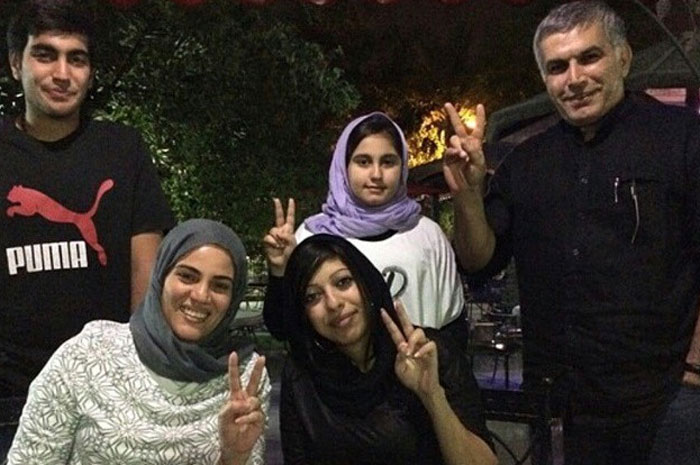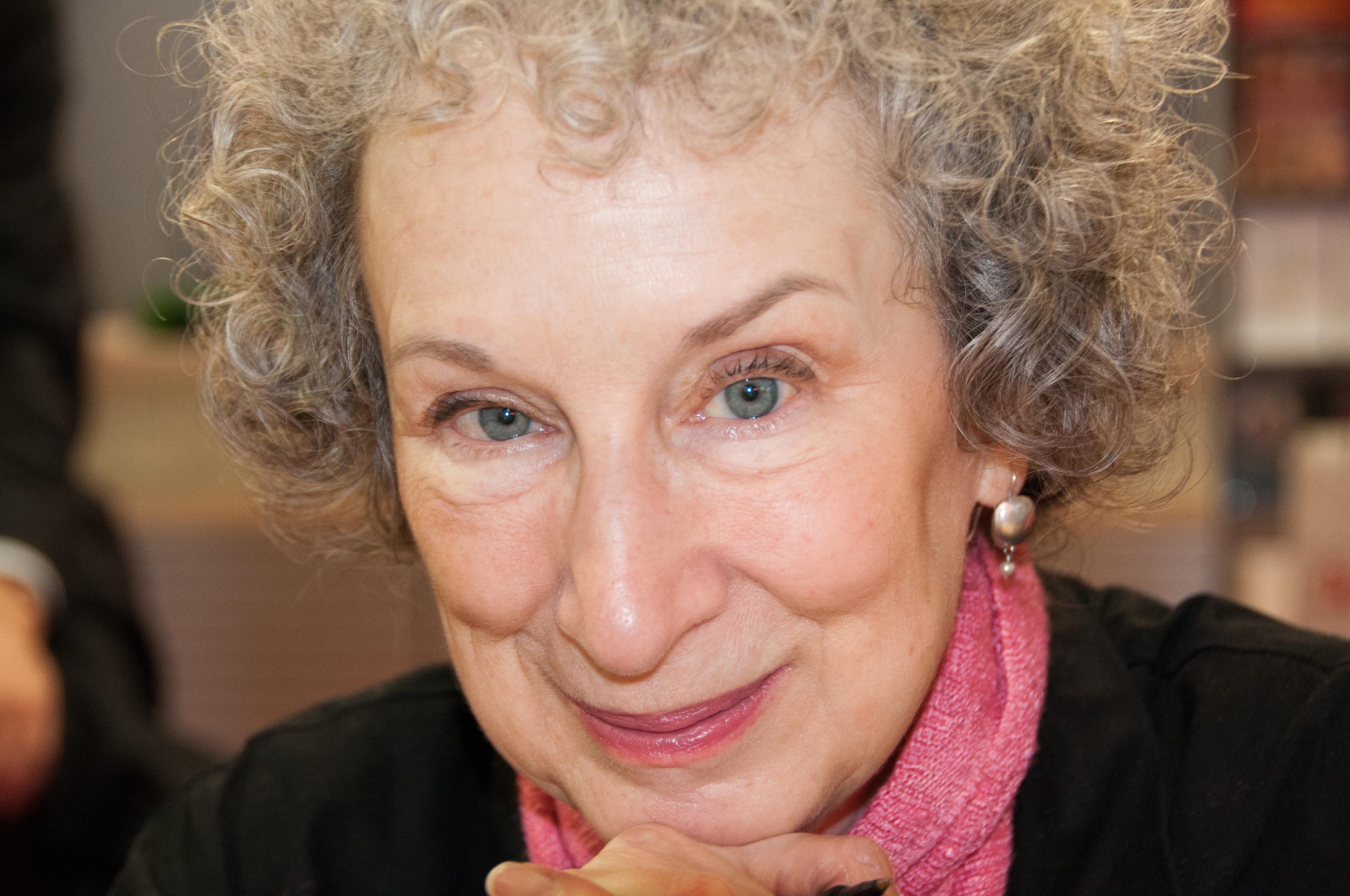[vc_row][vc_column][vc_single_image image=”95198″ img_size=”full” add_caption=”yes” alignment=”center”][vc_column_text]The 19th hearing of the leading Bahraini human rights defender Nabeel Rajab was unexpectedly held earlier than the court had originally ruled.
On 3 December, one of the lawyers was informally told by the court that the 2012 Index on Censorship Freedom of Expression Award-winning Rajab’s hearing would take place on 5 December – almost 4 weeks earlier than the agreed date. The court claimed that this was because a key witness, the man who initially arrested Rajab and confiscated his electronic devices, would be travelling on 31 December and unable to attend the hearing.
The case is related to comments on Rajab’s Twitter account about the Saudi-led coalition airstrikes in Yemen, and further comments exposing the torture in Bahrain’s notorious Jau prison. If convicted, Rajab will be sentenced to 15 years imprisonment. He is already serving a two-year sentence for conducting TV interviews.
Despite the protests of Rajab’s lawyers, who wrote to the court on 4 December to ask that the arguments instead be heard on 31 December, the hearing went ahead on Tuesday 5 December. However, the hearing was adjourned until 7 December for the defence to be given further preparation time to prepare the questions and interview Nabeel. Rajab was not present at the hearing due to an ongoing illness.
Despite the Public Prosecution’s failure to provide any incriminating evidence against Rajab, the court continues to chase evidence against him. In November, the prosecution requested to call on the officer who confiscated Rajab’s electronic devices to be examined in court. This request was granted and the trial was adjourned to 31 December. The sudden rearrangement of the trial has not given Rajab’s legal team adequate time to prepare, and violates Rajab’s right to a fair trial.
Sayed Ahmed Alwadaei, director of advocacy at the Bahrain Institute for Rights and Democracy, said: “The rescheduling of Nabeel’s trial for a significantly earlier date is especially worrying, since it suggests that he may be sentenced soon. It is probable that the government of Bahrain will use the distraction of the Christmas period to bury further news of Nabeel’s fate. The continued, unethical support of the UK and the US to Bahrain fosters a culture of impunity.”
Joy Hyvarinen, head of advocacy at Index on Censorship, said: “The moving of the hearing without due notice to Nabeel and his legal team violates his right to a fair trial and international norms for justice.”
In September 2017, a new set of charges was brought against Rajab related to social media posts. The posts were allegedly made in January 2017, when Rajab was already in detention and without internet access. Rajab also faces a fourth set of charges relating to a letter he penned to the New York Times in September 2016. In July 2017 he was sentenced to two years in prison for “spreading false news”; An appeal court upheld his sentence last month.
Rajab was transferred from the Manama Fort hospital to Jau Prison on 25 October 2017. On arrival he was immediately mistreated, subjected to a humiliating physical search, and shaved against his will. All of his personal effects, including books, clothes, toiletries and his shaving set, were confiscated. He is now kept with another 5 prisoners in a very small cell of no more than 3×3 meters.
Rajab is being continuously deprived of his basic rights in Jau Prison. He is denied any books, a specially-designed pillow that he requires for medical reasons, and the cotton clothing his family members gave to him. The clothing is particularly important, given that Nabeel is allergic to the synthetic clothes provided by Jau Prison.
Rajab also complains of a poor, insufficient diet; he is not allowed to visit the prison canteen to buy snacks and is allowed out of his cell for no more than one hour each day. A formal complaint to the Ombudsman has already been made about his treatment, but with no positive results so far.
Rajab, President of the Bahrain Centre for Human Rights, was arrested on 13 June 2016 and has been detained ever since. He was held largely in solitary confinement in the first nine months of his detention, violating the UN Standard Minimum Rules for Non-Custodial Measures (Tokyo Rules) which state: “pre-trial detention shall be used as a means of last resort in criminal proceedings, with due regard for the investigation of the alleged offence and for the protection of society and the victim.”
In early April 2017, Rajab was admitted to the Bahrain Defence Force hospital for a necessary surgery. He was transferred back to police custody just a day later, before he had fully recovered from his operation. As a result, his health deteriorated significantly; from there he was transferred to the Ministry of Interior Clinic (Al-Qalaa), where he remains to date. Between April and August 2017, Rajab was unable to attend court, leading numerous hearings to be held in his absence. Rajab was transferred back to Jau Prison in October.
The UN Committee Against Torture has called for Rajab’s release.
The UK Foreign Office stated: “We continue to closely monitor the case of Nabeel Rajab and have frequently raised it with the Bahraini Government at the highest levels. The UK Government continues to emphasise the need to respect the rights of all citizens, including freedom of expression.”
In the US, the Trump administration this year removed Obama-era human rights conditions on arms sales, one of which was the unconditional release of Rajab. In November, President Trump announced the advancement of $9 billion in commercial deals with the government of Bahrain, including finalizing the purchase of several American F16 jets.
-“History shows that those who take the decision to start wars loses the power to end them”
-“We have the right to say no to the war in #Yemen & should struggle for peace and stability but not bloodshed”
-For tweets as mentioned above my father Nabeel Rajab might serve 15years pic.twitter.com/pObwMbrTSi
— Adam Nabeel Rajab (@AdamNabeel) December 5, 2017
[/vc_column_text][/vc_column][/vc_row][vc_row][vc_column][vc_basic_grid post_type=”post” max_items=”12″ style=”load-more” items_per_page=”4″ element_width=”6″ grid_id=”vc_gid:1512551787343-26858886-5501-5″ taxonomies=”3368″][/vc_column][/vc_row]






